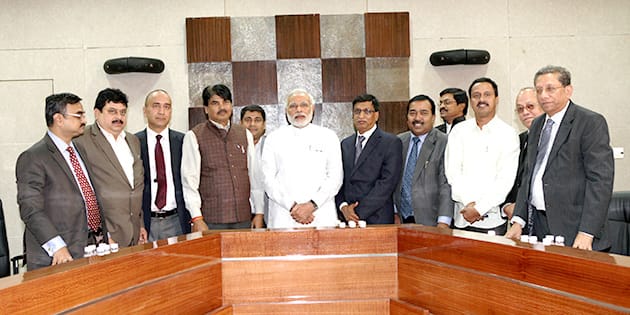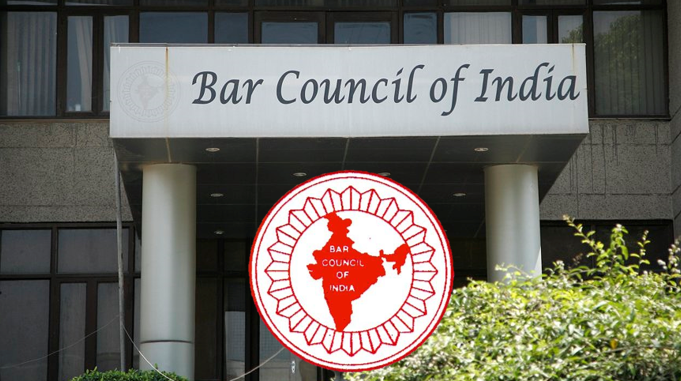Introduction
In an increasingly globalized world, the legal profession has not been immune to the forces of internationalization. The emergence of foreign law firms seeking to establish a presence in India has raised complex questions about the regulatory framework governing their operations. The Bar Council of India (BCI), the apex regulatory body for lawyers in the country, has been at the forefront of making crucial decisions regarding the entry and functioning of foreign law firms in India. This article delves into the BCI's decisions on foreign law firms and their implications for the legal landscape in India.
The Historical Context
India's legal services market was largely insular for decades, with restrictions preventing foreign law firms from practicing within its borders. However, the liberalization of the Indian economy in the early 1990s marked the beginning of a shift in this paradigm. The Indian government began to open up its legal sector to foreign players, recognizing the need for expertise in an increasingly globalized business environment.
The Advocates Act of 1961 and the Bar Council of India Rules laid down the framework for regulating legal practice in India. The interpretation and application of these laws became pivotal in deciding the extent to which foreign law firms could operate in India
BCI's Decisions and Their Impact
1. Entry through 'Fly-in, Fly-out' Consultations:
One of the key decisions made by the BCI was to allow foreign law firms to provide legal advice to their clients on foreign law, as long as it was on a "fly-in, fly-out" basis. This decision permitted foreign lawyers to visit India for consultations without establishing permanent offices.
Impact: This move facilitated cross-border transactions by allowing Indian businesses access to international legal expertise without compromising the regulatory framework.
2. Advocacy Ban Upheld:
The BCI maintained its stance on foreign lawyers not being allowed to practice Indian law or appear before Indian courts. This restriction aimed to protect the interests of domestic lawyers and uphold the Advocates Act.
Impact: While foreign law firms could advise on Indian law through collaboration with Indian lawyers, they were not permitted to independently represent clients in Indian legal proceedings.
3. Liberalization of Legal Services:

In 2018, the BCI introduced significant changes by permitting foreign law firms to establish liaison offices in India for non-practice purposes. These offices could only engage in limited activities such as market research, legal education, and dispute resolution through arbitration.
Impact: The decision signaled a partial opening of the Indian legal market, allowing foreign law firms to have a physical presence in India for specific purposes while still restricting their practice of Indian law.
4. The Controversial Draft Rules:
In 2020, the BCI released draft rules that sought to regulate foreign lawyers and law firms more comprehensively. These rules proposed allowing foreign law firms to practice Indian law after registration, subject to certain conditions.
Impact: The draft rules generated considerable debate within the legal community, and their final outcome remains uncertain. They represent the ongoing evolution of the BCI's stance on foreign law firms.
Current Provisions

In 2022, the Bar Council of India (BCI) has notified Rules for Registration and Regulation of Foreign Lawyers and Foreign Law Firms in India, allowing foreign lawyers and law firms to practice in India.
However, it did not allow them to appear before courts, tribunals or other statutory or regulatory authorities.
What is the BCI DecisiDecisionl?
For over a decade, BCI was opposed to allowing foreign law firms in India.
Now, the BCI has reasoned that its move will address concerns about the flow of Foreign Direct Investment in the country and make India a hub of International Commercial Arbitration.
The rules bring legal clarity to foreign law firms that currently operate in a very limited way in India.
The BCI said it “resolves to implement these Rules enabling the foreign lawyers and Foreign Law Firms to practice foreign law and diverse international law and international arbitration matters in India on the principle of reciprocity in a well-defined, regulated and controlled manner.
What are the New Rules?
The notification allows foreign lawyers and law firms to register with BCI to practice in India if they are entitled to practice law in their home countries. However, they cannot practice Indian law.
According to the Advocates Act 1961, advocates enrolled with the Bar Council alone are entitled to practise law in India. All others, such as a litigant, can appear only with the permission of the court, authority or person before whom the proceedings are pending.
They shall be allowed to practice transactional work /corporate work (Non-Litigious Practice) such as joint ventures, mergers and acquisitions, Intellectual Property matters, drafting of contracts and other related matters on a reciprocal basis.
They shall not be involved or permitted to do any work pertaining to the conveyancing of property, title investigation or other similar works.
Indian lawyers working with foreign law firms will also be subject to the same restriction of engaging only in “Non-Litigious Practice.”
What is the Significance of the New Move?
It is likely to pave the way for potential consolidation, especially for firms dealing in the cross-border mergers and acquisitions (M&A) practice in particular.
Entry of foreign law firms will support in a big way the ambition of India to be more visible and valuable in a global context, especially on international trade and commerce.
This will be a game changer for the mid-size firms and will also help the law firms in India to achieve more efficiency in talent management, IA, technology, domain knowledge in a global context, and management.
Opinion Of Lawyers Fraternity
Indian legal firms argue that grant of entry to foreign rivals is premature without an amendment in law
 Lalit Bhasin, President, Society of Indian Law Firms
Lalit Bhasin, President, Society of Indian Law Firms
The Society of Indian Law Firms (SILF) has submitted a 20-page representation to the Bar Council of India (BCI), demanding the repeal of the rule allowing foreign law firms and lawyers to practise international arbitration in India. SILF has expressed concern over the timing of the move and cautioned that it went against the Supreme Court’s 2022 judgement. SILF wants the BCI to reject all the applications received from foreign lawyers or firms seeking registration in India.
Conclusion
The BCI's decisions regarding foreign law firms reflect a delicate balancing act between opening up India's legal market to global players and safeguarding the interests of domestic lawyers. While the BCI has taken steps to allow foreign firms to provide advisory services and establish liaison offices, it has upheld the ban on foreign lawyers practicing Indian law.
The regulatory landscape for foreign law firms in India remains dynamic, with debates over the proposed draft rules continuing. The BCI's decisions will significantly influence the future of legal services in India and the extent to which foreign firms can participate in this evolving market.
As India's economy continues to grow and integrate with the global economy, the role of foreign law firms will become increasingly important. The BCI's decisions will shape the contours of this evolving legal landscape, determining how Indian and foreign lawyers can collaborate and serve clients in an interconnected world.

